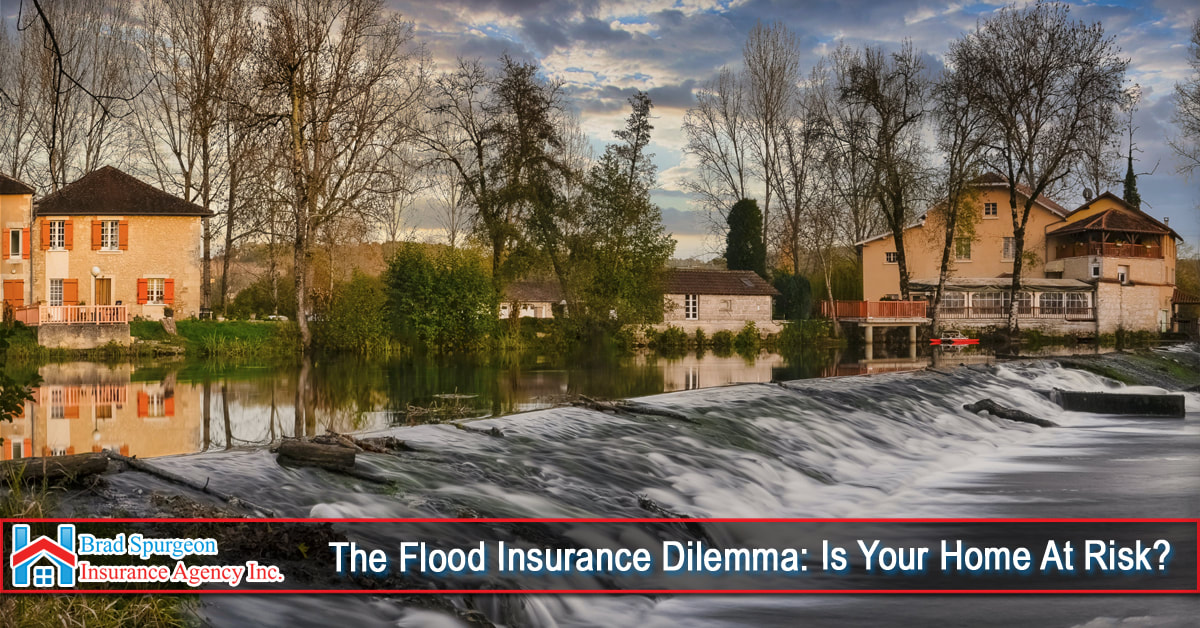First and foremost, it's essential to understand that flood damage is typically excluded from standard homeowners insurance policies. While your policy may cover water damage from burst pipes or a leaking roof, it does not extend to damage caused by rising waters from external sources such as rivers, oceans, or heavy rainfall.
Assessing Your Home's Flood Risk
To determine if your home is at risk of flooding, consider the following factors:
- Location: Check your property's proximity to bodies of water, floodplains, or areas prone to heavy rainfall. High-risk areas are more likely to experience flooding.
- Historical Data: Research local flood history and inquire about any past flooding incidents in your area.
- Elevation: The elevation of your property in relation to nearby bodies of water can impact flood risk. Homes at a lower elevation are more susceptible.
- Flood Maps: FEMA (Federal Emergency Management Agency) provides flood maps that designate flood zones. You can use these maps to assess your risk level.
The Importance of Flood Insurance
If your home is at risk of flooding, securing flood insurance is crucial. Here's why:
- Coverage for Flood Damage: Flood insurance provides coverage specifically for flood-related damage to your home and its contents. It can help you recover financially after a flood event.
- FEMA Assistance Is Limited: While FEMA offers disaster assistance for certain flood-related losses, it is often limited and may come in the form of a low-interest loan, which you must repay.
- Mortgage Requirements: If you live in a high-risk flood zone and have a federally backed mortgage, you are typically required by law to have flood insurance.
- Protecting Your Investment: Your home is one of your most significant investments. Flood insurance helps safeguard your financial future and ensures you can repair or rebuild your home if it sustains flood damage.
Understanding Flood Insurance Policies
Flood insurance is typically offered through the National Flood Insurance Program (NFIP) or private insurers. Here are key points to consider:
- Eligibility: Most homeowners, renters, and business owners in participating communities are eligible for NFIP coverage. Private insurers may offer alternatives.
- Premium Costs: Premiums vary depending on factors such as flood risk, coverage limits, and deductible choices.
- Waiting Period: There may be a 30-day waiting period after purchasing flood insurance before it becomes effective, so don't wait until a flood threat is imminent.
- Coverage Options: You can choose between building coverage (for the structure) and contents coverage (for personal belongings). It's important to determine the appropriate coverage limits for your needs.
In Conclusion
The flood insurance dilemma is a critical issue that every homeowner should address. Understanding your home's flood risk and securing proper flood insurance coverage is essential to protect your property and finances. Don't assume that your standard homeowners insurance policy will cover flood damage – it typically does not. Take proactive steps to assess your risk, explore flood insurance options, and make informed decisions to ensure you are adequately protected in the event of a flood. Your home is a significant investment, and the right flood insurance policy can help you preserve its value and your peace of mind.
At Brad Spurgeon Insurance Agency Inc., we aim to provide comprehensive insurance policies that make your life easier. We want to help you get insurance that fits your needs. You can get more information about our products and services by calling our agency at (409) 945-4746. Get your free quote today by CLICKING HERE.
Disclaimer: The information presented in this blog is intended for informational purposes only and should not be considered as professional advice. It is crucial to consult with a qualified insurance agent or professional for personalized advice tailored to your specific circumstances. They can provide expert guidance and help you make informed decisions regarding your insurance needs.

